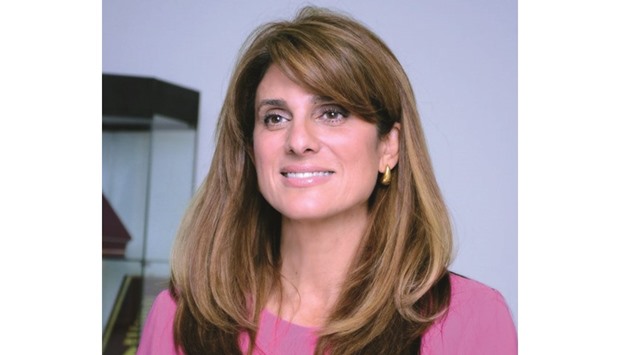After the initial shock subsided, we switched to action to help save our little boy. In Jordan at the time (1997) there was no quality cancer treatment, so we were lucky to be able to afford the life-saving opportunity for treatment in the UK and later in the US.
With God’s grace and quality treatment, our son beat ALL leukaemia and survived. I know we were lucky to have the opportunity to save him and we are thankful every day for the gift of his cancer-free status. However, millions of parents who love their children as much as we do are not able to perform a parents’ sacred duty of being able to protect and save their children.
As a mother of a cancer survivor, I plan to work tirelessly to help reduce the global burden of childhood cancer and ensure that a child in the developing world has the same chance to be cured as a child with cancer in a developed country.
As we speak, a child in Africa with ALL Leukemia has 10% chance for a cure, whilst his/her counterpart in the developed world has 90% cure rate. This is totally unacceptable. The chance for a cure should not be an accident of geography.
As a former Director-General of the King Hussein Cancer Foundation for 15 years, I have worked in Jordan and campaigned around the world for better prevention and treatment to cancer. As president-elect for the Union of International Cancer Control (UICC), I am dedicated to reducing the global cancer burden, promoting greater equity, and integrating cancer control into the world health and development agenda. Comprised of over 1,000 organisations from 162 countries, we’re the largest cancer-fighting organisation in the world.
According to the World Health Organisation (WHO), three quarters of all NCD deaths (28mn), and the majority of premature deaths (82%), occur in low- and middle-income countries. This is already a global pandemic and we have much work to do to make sure that everyone has the access to a cure.
A critical component will be how WHO steps up to tackle cancer and other non-communicable diseases. On smoking in particular, the evidence is clear that increased taxation is one of the most effective ways to reduce smoking and related disease. It is important for the WHO to ensure lessons of taxation are appropriately shared, as well as lessons on plain packaging so member states can make informed judgment calls.
It’s not only tobacco control; with the proportion of people that are overweight and obese going up across the world, the WHO has a key role to play in bringing stakeholders together and spreading lessons across the world. For example, the soda tax in Mexico has reduced consumption of sugary drinks and Jamaica has launched a public exercise programme to raise physical activity.
Next month, WHO member states will elect a new WHO Director-General who has the opportunity to drive action on NCDs around the world: to take on the tobacco and food industries and hold countries to account in their delivery of the global NCD targets. They must also ensure that the next Director-General understands, identifies with and prioritises the situations of women and mothers around the world - particularly those in the less wealthy regions of the world, where care is equally as crucial but far more difficult to access.
All three candidates are outstanding individuals with impeccable track records working in global health. One candidate stands out, and that is Dr Sania Nishtar whom I have known professionally and personally for some time. She has been a formidable leader combating NCDs for the last 20 years - from being the first female cardiologist in Pakistan and working with patients on prevention and treatment to chairing the WHO Commission on Ending Childhood Obesity.
It is this breadth and depth of Nishtar’s international experience at tackling the global epidemic of heart disease, diabetes and cancer - amongst many other attributes - qualifies her for the critically important position of Director-General World Health Organisation.
Nishtar is the only candidate that has looked at health challenges through virtually every lens and has the all-round experience as an internationally respected medical doctor, civil society leader, former cabinet minister, thought leader, and technical expert, making her uniquely positioned to lead in the “SDG era” and tackle the multi-faceted health problems that the world now faces.
Nishtar has garnered unprecedented support from women around the world through her women’s declaration and she would be the first leader from the WHO EMRO region and a country that falls within the Organisation of Islamic Co-operation.
As someone who has been touched by cancer, and who has witnessed first-hand the inequity of cancer care and other NCDs, especially in developing world, I am determined to do all I can to combat this diseases. I urge all governments to step up and vote for the right leader to fight the leading global disease killers.
* Princess Dina Mired from Jordan is a global advocate for cancer and other NCDs. She writes this comment in her individual capacity and not on behalf of any organisation.

